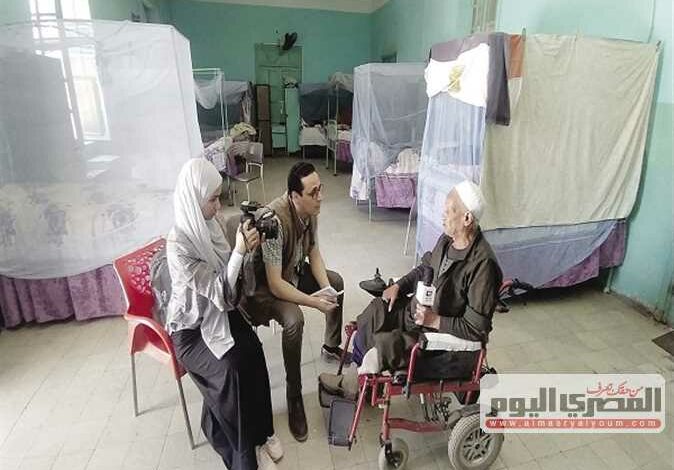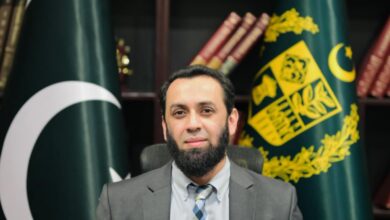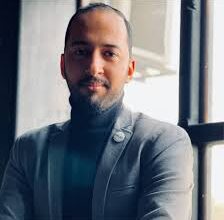
The leprosy colony in Abu Zaabal, Qalyubiya Governorate, is almost a century old. In that time it has received patients from all over Egypt – some who came voluntarily for treatment, while others were isolated forcibly to stop them from spreading the disease.
All of them have stayed there until their last breath.

The accounts of pain and suffering in this colony all share a common thread: the patients say they suffer more from stigma and isolation than they do the disease itself.
It is these stories that reveal how misunderstandings about leprosy, and the cruel treatment of those suffering from it, has ostracized them from society and even their own families!
Over the course of 15 years, I visited the leprosy colony three times, the last of which was this May.
Perhaps nothing has changed in that time.
Our last visit to the colony came after some called for its closure, due to the decline in the number of patients and the futility of its presence.
Yet before entering the colony’s headquarters, we were shocked by the intense presence of policemen and central security vehicles, in the midst of a large gathering of patients residing in the colony.

They were protesting to prevent anyone from entering, including the working doctors.
The reason was their refusal to be evicted by officials from the colony that they had come to spend most of their lives in. The security forces remained for a short period until a number of officials and patients intervened to calm protesters in the colony.

Eventually the situation calmed down, after reassuring the protesters they would not be evacuated and would continue to receive the treatment and food that they get periodically amongst annual support from the Ministry of Health.
In statements to Al-Masry Al-Youm, officials within the Health Ministry debunked rumors spread online – especially each Ramadan – claiming that the colony is suffering from a shortage of supplies and needs people to donate money and food.

Many of these donations do not reach the beneficiaries and only serve to harm the ministry’s reputation, the officials said, adding that the patients maintain their rights and many are basically recovered and don’t actually need to stay at the colony.
The Ministry of Health assured that it supports the colony with food supplies exceeding LE10 million annually.
We started our tour by meeting the director of the hospital, doctor Mohamed al-Ghamazi. He seemed to be exhausted due to being present for a long time among the patients, having tried to persuade them to refrain from protesting and closing the doors of the colony against visitors.
We sat at his office to talk about the conditions of the patients and the services provided to them, including medicine and food.
He explained that for some patients whose conditions have improved still reside in the colony for humanitarian and social reasons.
The head of the dermatology department in the colony, Doctor Marwa Adel, entered with a group of patients, carrying a bundle of papers.
Adel disagreed with them and they came to the director of the hospital to decide on the matter.

Adel said that a patient who visits the hospital every once in a while to receive treatment and who is currently getting cortisone, wanted to to stay in the hospital, even though his condition according to Adel no longer requires his stay.
Amid pleas from the patient, who presented documents stating his need to be hospitalized, a discussion took place between the hospital director and the head of the dermatology department.
Eventually both doctors agreed to admit him into hospital, given that there was no other place to provide him with the required treatment especially with a possibility of him suffering from complications.
The head of the infection control team, Doctor Rasha Mustafa, accompanied us on our tour of the colony.
She said that the colony is divided into three sections – a section for men, a section for women, and the hospital section with its outpatient clinic, receiving frequent patients and dispensing medicines.
She said there are seven wards in the men’s section with a total number of 122 patients, compared to 175 female patients at the women’s eight wards.
The hospital department has seven wards, hospitalizing 233 patients, bringing the total number of patients in the colony to 530.

Donations cause tension
A medical official, who chose not to be named, described an issue the colony is facing by telling us that residents will not leave due to the large number of donations by charitable people throughout the year to patients and their families.
Infected prisoners
The colony includes almost everything related to leprosy patients to the extent that it includes a secluded place, surrounded by fences and an iron gate, with 24-hour security.
Located approximately 300 meters from the entrance to the colony, this is where prisoners with leprosy are sent to serve out their sentence.

In the women’s wards: Different stories, shared pain
Inside the women’s wards, the situation may be more difficult and harsh compared to the men’s.
For all they have is their old age and features that showed the harshness of time and disease, alongside stories of abandonment and separation from their families.
Burying their own
Cemeteries for dead patients are established on a six-acre-area, where more than a thousand bodies are currently interred.
The refusal of the families of the patients to receive the bodies prompted the the colony’s residents to think about the fate of their bodies.
They took aside a space a little far from their place of residence, and set up their own graves.
The story of Sabiha, the oldest resident of the colony

Sabiha entered when she was seven years old. She is the oldest resident of the colony, and everyone knows her here.
She has lived in the colony since 1960. I met her on my last visit to the colony in 2017. Her wishes at the time were to travel to perform Umrah, and her biggest dream was to get out of the wall of the colony, to see the people outside and how they live.
Now, thanks to the generosity of donators, she was finally able to fulfill her dream of performing Umrah.
Society’s cruelty
“People outside are very bad,” is how Abdulaziz Saad, a patient within the men’s wards in the colony, describes society’s stance to leprosy patients.
He told us that he has been here for many years. He suffered greatly when he decided to travel to visit his relatives in his village in Kafr al-Sheikh Governorate, he said.
The trip only lasted a few days until he returned to the colony, having been rejected by his own family.

Edited translation from Al-Masry Al-Youm




